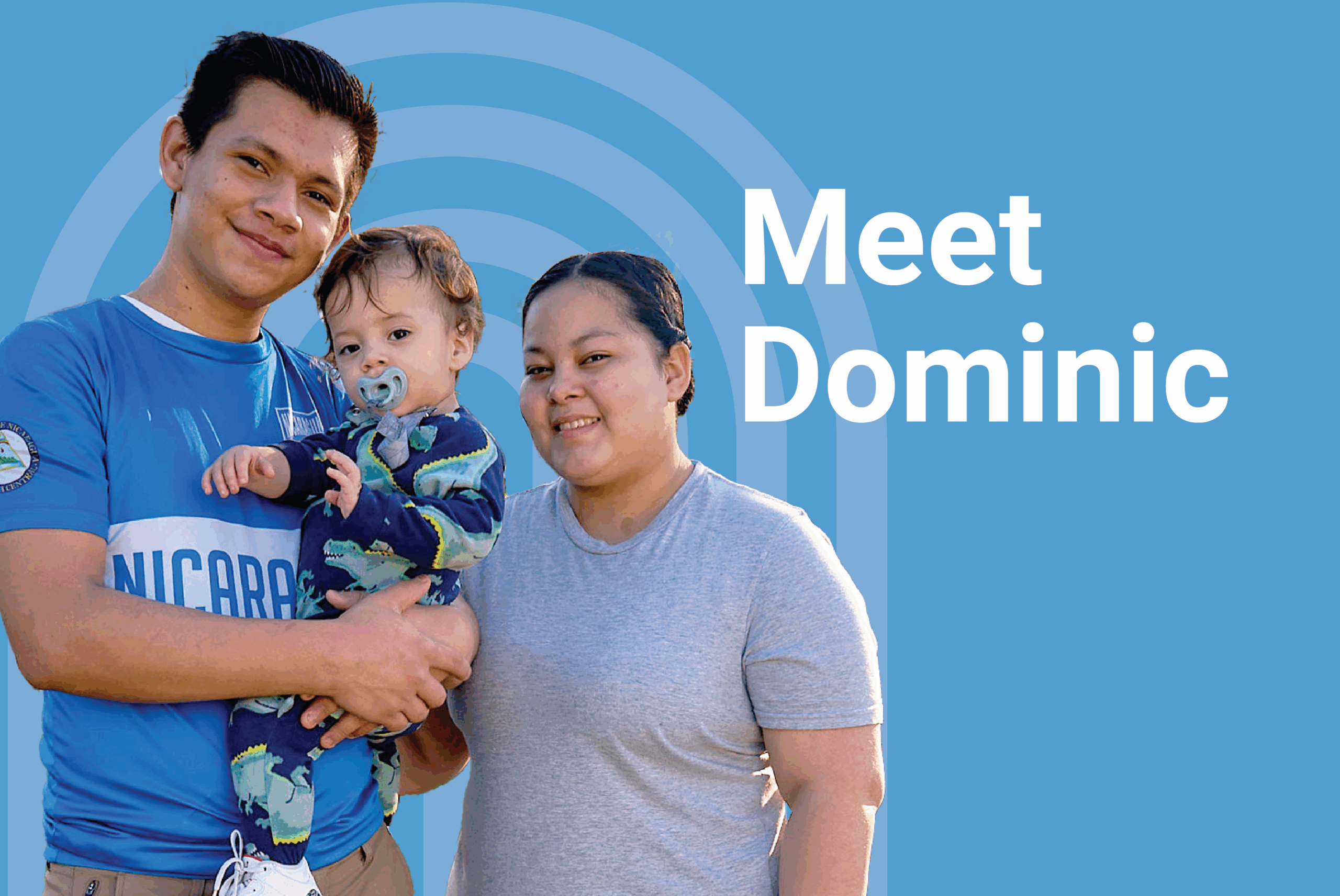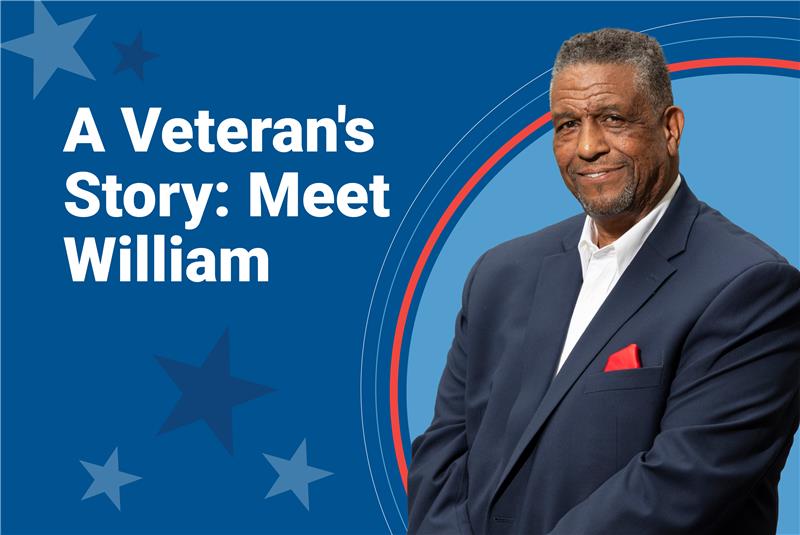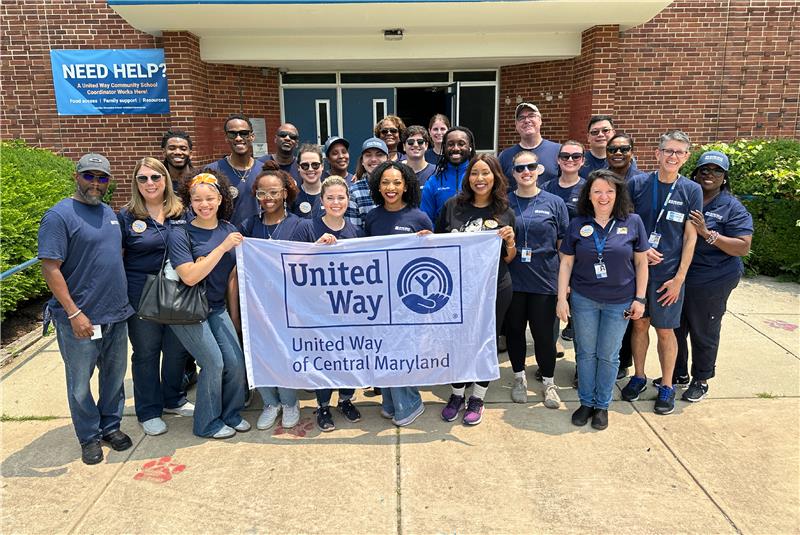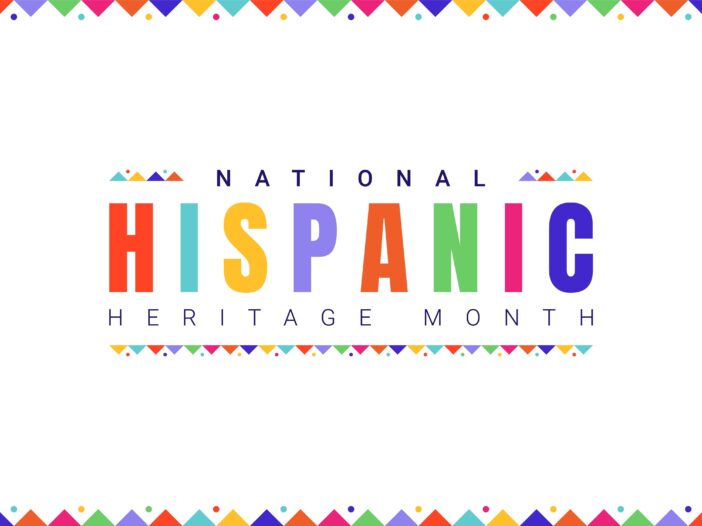
United Way Women Advancing Equity, Access, and Opportunity
Saludos! In honor of Hispanic Heritage Month, we proudly celebrate the achievements and contributions of our Hispanic friends, neighbors, and peers who enrich the cultural tapestry of our community.
We’ve witnessed the community’s growth and been inspired by the enormous contributions Hispanics make across Greater Baltimore. We’ve also seen the struggles of too many Hispanic families in our community. Our work in housing, education, health, and economic advancement helps strengthen their lives.
We’re proud to shine a light on three inspiring Latinas from our United Way familia.
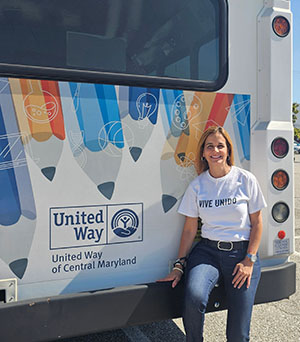
Liz Acosta, Associate Vice President of Governance
Born and raised in Miami, Florida as a first-generation Cuban American, Liz grew up in a community where Cuban cafes dotted nearly every corner, and Spanish was spoken in nearly every household. She vividly recalls friends and neighbors in need getting services from people who spoke their language and understood their culture, which led to-above all else-trust.
“We are taking huge steps to meet the needs of the Hispanic community, from increasing outreach and recruiting Spanish-speaking volunteers at our service events, to recruiting more Hispanic employees and board members, to providing more resource information in Spanish. When you speak to someone in their language, you speak to their heart-that’s where change begins.”
For this year’s Project Connect event in Harford County, which provides a host of services and resources at one location, United Way recruited more than enough Spanish-speaking volunteers to respond to the needs of Hispanic participants.
To underscore the power of language and cultural awareness, Liz points to another United Way event she volunteered at with her son last year in the Brooklyn neighborhood of Baltimore. She was one of the event’s few Spanish-speaking volunteers, in an area that is predominantly Hispanic. “As soon as I spoke in Spanish, faces lit up. Every time a mother or father came in, they lit up. They were happy to see us. The stiff posture on the outside loosens up when somebody speaks your language.”
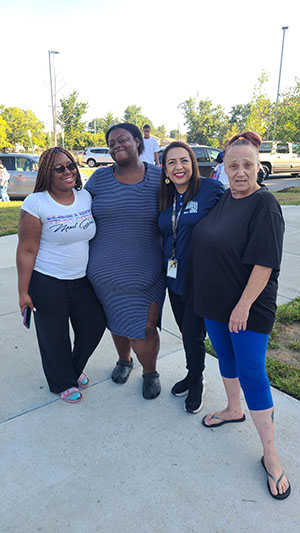
Herelys Parks, Community School Coordinator at United Way partner school, Bay Brook Elementary/Middle School
When Herelys came to the U.S. from Venezuela in 2016, her love of education beckoned her to pursue a career that would help strengthen students, families, and communities.
As part of her job as the Community School Coordinator at United Way partner school Baybrook Elementary/Middle, she develops strong partnerships between the school and other nonprofits to support students and their families with a wide range of needs, from school supplies to healthy meals via a food pantry. “Partnerships are so important because a student’s needs go beyond academics. A child cannot do well if they’re struggling at home. When you can make a difference in someone’s life, it’s the best feeling you can have.”
Herelys often forges strong bonds with families long after their children graduate from school. “I enjoy what I’m doing-the social connections and building community. United Way for me has been an amazing place to work because it’s more like a family. The fact that we have the whole staff, the whole organization, to help us achieve our goals is special.”
For Herelys, Hispanic Heritage Month is not only a time to celebrate the community’s achievements, but also a time to recognize the cultural nuances and diversity within the Hispanic community itself. Every week, she serves families from Mexico, El Salvador, Dominican Republic, Cuba, and other Latin American community members who need a helping hand.
“Words can mean different things to people from different countries. We share a culture and language, but each country has its idiosyncrasies,” she says. “This position has opened my eyes. It’s like seeing another side of my own culture. One of the things I love about the Latino community is that we are a vibrant mix of cultures.”

Gabriella Giannini, Director of Grant Writing
As United Way’s Director of Grant Writing, Gabriella Giannini is responsible for overseeing and managing a grant portfolio of $3 million. She researches grants, discovers opportunities for partnerships, identifies areas of need, and seeks funding from public and private partners interested in making a difference. Applying United Way’s equity lens to grant writing extends far deeper than data and words. “A big part of my job is being able to empathize and get into other people’s shoes, and to tell a strong story when conveying need,” she says.
Gabriella draws on her own life journey and upbringing to ensure that empathy and cultural awareness are infused throughout the grant-writing process. She was born and raised in San Francisco in a multicultural household. Her mom was born in Mexico, and her dad is from Italy. Many family members and friends she grew up with were immigrants who recently arrived and needed a helping hand.
“I looked up to my mom. Faced with any challenge, she has this ‘nothing is going to stop me’ attitude, and I see that same determination in all Latinos,” she says. “She always worked. It was never easy. She amazes me, and because of her, I was the first person to graduate college in my family. Nobody in my life has supported me more than her.”
In Baltimore, she continues to be inspired by the resilience of the immigrant community amidst the growing anti-immigrant sentiment being seen in some areas of the country. “Because of the language barrier and immigrant status, they face additional barriers. That troubles me,” she says. “Imagine being forced to move somewhere out of necessity, to leave your family and loved ones behind because you seek safety. You’re forced to face one barrier after another.”
While Gabriella enjoys celebrating Hispanic Heritage Month, she believes that recognizing the positive contributions of Hispanics should not be relegated to just one month a year. “As a community, we have so much to offer. From food to salsa dancing, so much of American culture is influenced by Latinos. We make up a significant percentage of the population. Hopefully, someday Latino influence will be the norm.”
